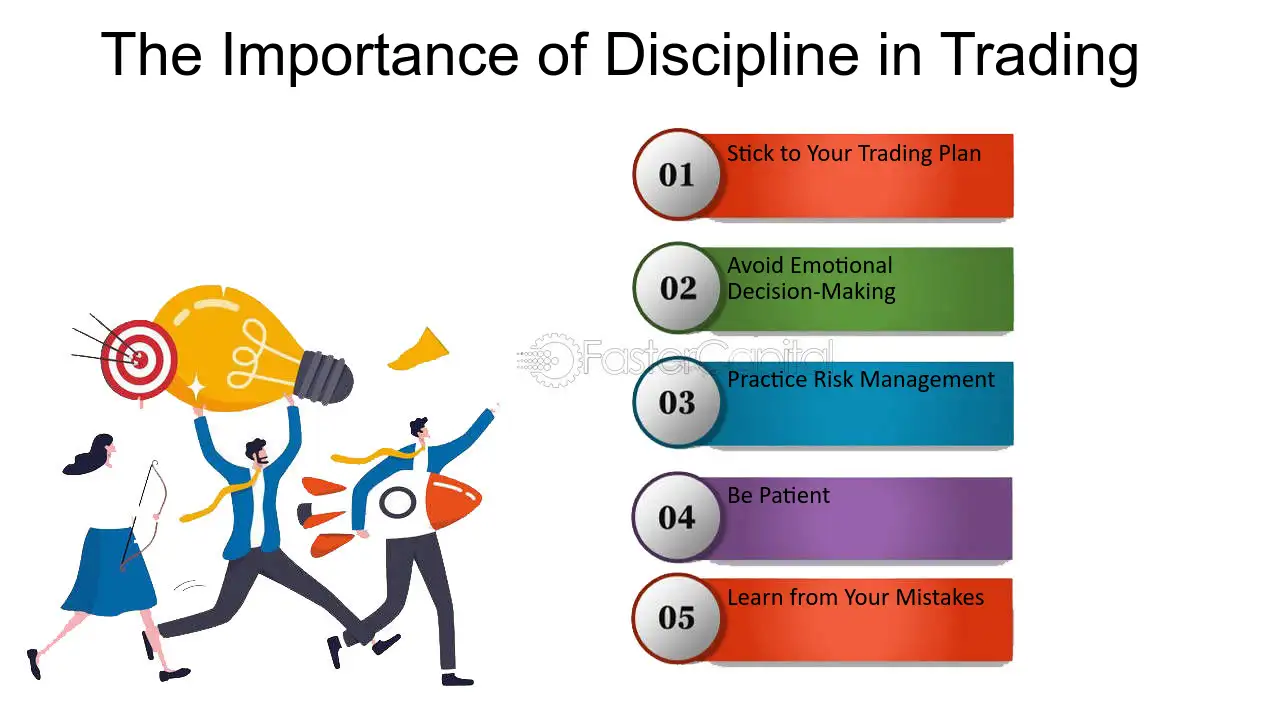Its trading discpline traders are leverage business, there is no value in research and confidence. Stock Market, Forex, Commodity or Cryptocurrency discipline is simply the ability to stick not only to your trading strategy but strictly avoid Emotional decision making which ultimately ensures consistent use of that particular system and thereby results in a consistent performance. You can learn today from LIOCM in Pakistan.
Discipline is the catalyst for impulsive trades, over-leveraging and a series of gut-wrenching losses — with discipline traders can control their risk, remain objective in thinking, and increase the likelihood of positive progression in trading results.
What is Trading Discipline?
Trading discipline is the adherence to a trading system, composed of rules and styles that dictate whether a trade is taken or not, accompanied by good risk money management. It requires planful trading, informed trade execution, and the ability to not act on fear, greed, or impulse. This also means keeping your emotions in check when markets behave erratically.
It is one of the most important aspects of trading any market as they are often overly emotion-driven. Cryptocurrency prices move quickly and traders are always under pressure to make a trade on these short-term changes. It can be very tempting to move your keys during this phase when market dynamics can tempt the less-disciplined followers out of their positions.
The Role of a Trading Plan
Disciplined trading is built in with a solid trading plan. It covers your entry and exit points, how much you are willing to lose, what portion of your account is going into the trade, and whatever strategy. It sort of serves as a blueprint for navigating through the unknown waters of the market. A well-crafted plan includes:
1. Having clear goals: Have a clear idea of why you are trading — is it to make short-term profits, or for long-term accumulation of wealth?
2. Risk Management Rules: Guidelines Establish an amount of risk you are willing to take on per trade (commonly a small percentage of your total capital) and employ stop-losses to reduce losses.
3. Entry and ExitCriteriaa: Use technical indicators, fundamental analysis, or a combination of both to figure out when to get in and out of trades… not just act on raw emotion.
4. Review and Re-Evaluate Regularly: The major aspect of any strategy is to keep evaluating and tweaking it based on the performances under different market conditions, but do so with data and not emotions.
Following this strategy keeps traders from making emotional trades such as chasing losses or taking impromptu trades.
Problems of Disciplineinn Trading
Several factors can test your discipline as a trader:
1. Fear and Greed: Fear of cornered worlds can lead to irrational decision-making as well, maybe exiting a trade too soon or hopping into something without doing the necessary DD. Greed, on the other hand, having gotten a winning trade and wanting more, can keep you in a winning trade long enough to give up all the profit instead of partially surrendering to an exit.
2. Overtrading – By always wanting to be in the market, you risk making an excessive amount of trades which are more often than not based on sub-par setups that lead to a negative outcome.
3. Over-leveraging – Excess leverage not only increases gains but also losses and is typically a fast path to losing control of the trade. Successful traders use leverage smartly, knowing all the risks it carries.
4. Emotional Reactions — Sudden and unexpected news events or volatile markets can often spark emotional reactions that rule over logical thinking. Fear, for instance in a market crash, traders might start panic selling at the dead bottom hence unnecessarily locking losses.
Training Trading Discipline
Discipline is not something you learn overnight. It takes time, the right practice, and immense effort to cultivate it in yourself. To help sustain focus, consider the following:
Maintain a routine: Develop some routine for analyzing the markets, checking your trades, and following the same.
They Adhere to a Trading Journal-Write out each commerce and also the reason behind it. It will allow you to see how you spend your time and help you notice patterns in what may be working or not.
Bide Your Time: Do not succumb to the urge to trade if the market is not giving you transparent trades. It can be going dark, burrowing in the earth and perhaps in the end the best trade will prove to be no trade.
Control your Emotions – Remembering the emotional ground is all that shapes up a current operation. If you start to feel the anxiety or excitement, step away.
Conclusion
It is all about trading discipline which distinguishes successful traders from the rest. Provides a toolbox for traders to form a systematic approach, control risk, and stay objective even in the face of wild market movements. It is natural for a trader to feel fear and greed, while disciplined traders acknowledge them and go with their plan. Long term, consistency in discipline leads to consistency in profits.

